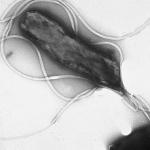To be fair, that isn’t the fault of researchers. Marijuana remains classified as a Schedule 1 drug, with no medical indications and a high risk of abuse.
Disease
For years, waking up in the morning was a real gamble. Would I have a pounding migraine or wouldn't I?* I remember thinking (sometimes out loud), "What's the point of sleeping if I feel so awful in the morning?"
First, a little background to give the research some context. [1]
If the media has a question about biomedical science, one would assume that a scientist or doctor would be the go-to source of information. But this is 2020, and we're way beyond that.
Temperature is one of the standard vital signs, with fever typically indicating the presence of an infection.
First, kudos to the Camden Coalition of Healthcare Providers, who started the movement and had the integrity to see whether the program accomplished its goals.
Ovarian cancer is, thankfully, given its poor prognosis, a rare disease in the US – estimated lifetime risk of 1.5%.
Infectious disease is responsible for a substantial amount of morbidity and mortality around the world.
For patients undergoing aortic valve surgery and looking for the “right” hospital these are more than academic questions. In fact, which hospital is best depends a lot of how long a survival you are looking for.












